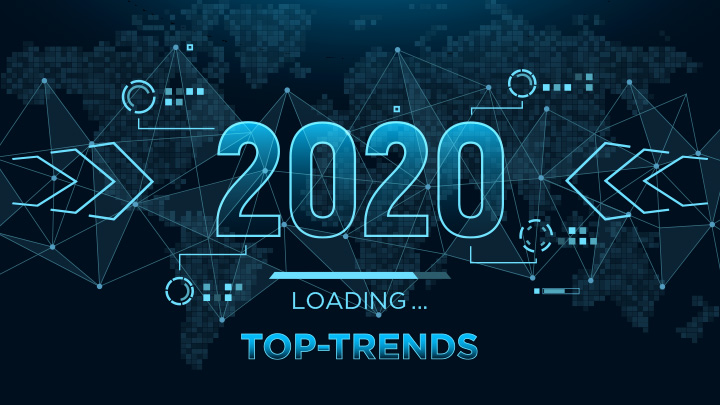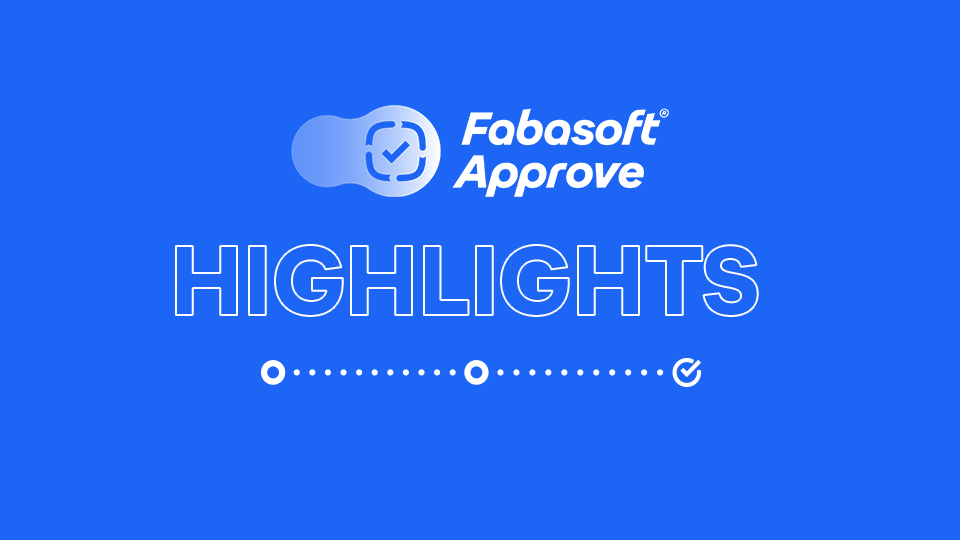As the world of business continues to witness the inexorable advance of the digital transformation, new technologies for automation and process optimisation have successfully gained a foothold in the corporate environment. While this means that the initial steps have been taken, additional perspectives need to be integrated if we are to pursue the road to digital transformation successfully.
In its position paper “Top 10 Strategic Technology Trends for 2020”, the Gartner Group has identified the most significant trends corporate executives are encouraged to consider for the coming year. From the perspective of Fabasoft, the following three top trends emerge for 2020: hyperautomation, transparency and traceability, and smart contracts.
Hyperautomation
The term “automation” refers not only to conventional automation of tasks and activities. Instead, “hyperautomation” encompasses the combination of repeated machine learning, prefabricated (primarily business) software and automation tools that perform work autonomously in the broadest sense. This not only includes the range of relevant tools, but also all the tasks they perform: discovering, analysing, designing, automating, measuring, monitoring, and reassessing.
According to Gartner, adapting workflows to the needs of the organisation, to changing market conditions, and to the competition is a crucial factor. Modern cloud solutions for business process management (BPM) currently make use of a powerful and customisable workflow engine that can perform all these steps. Business process clouds can boost the agility, productivity, and efficiency of the entire workforce.
Transparency and traceability
Compliance with legislation governing data privacy, data security, and ethical conduct on the part of organisations is becoming increasingly important to broad user groups, from individuals and organisations to government agencies. Consumers are demanding the right of self-determination regarding the personal data they have identified as valuable. Laws such as the EU GDPR force organisations and companies to address these issues and implement the requirements in order to avoid the risk of penalties.
Recently, there has been growing awareness that the issues of explainability, transparency, and traceability apply not only to data usage and business processes, but also to the technologies running in the background. If, for example, AI models are embedded, then – like the organisation itself – they, too, must be subject to ethical, legal and governance principles that can and must be enforced and monitored.
Serious cloud service providers who have concentrated on digitalising business processes have placed great importance on data security, data protection, and comprehensive user settings for customers from the very beginning in order to ensure maximum transparency. This provides customers with the support they need to make decisions about their data as they see fit and to manage it securely in compliance with legal requirements.
Smart contracts
Smart contracts encompass far more than just the benefits of blockchain technology. Rather, the term captures the entire digital life cycle of a contract, from negotiation to control and verification of the fulfilment of contractual obligations. Blockchain is the technical implementation of the principle of the distributed ledger. This log of records records all relevant events linked to the execution of a contract in a tamper-proof format. Only persons with authorised access can view this type of contract information, creating the resultant effect of a trust model in this distributed architecture. This means that the parties involved don’t even have to know or trust each other – they can trust the accuracy of the information in the contract. Things like program code can cause changes to the blockchain (events, etc.) that trigger further actions, such as a transfer of an outstanding amount.
Customers don’t have to wait for this technology to mature. It is already possible to use smart contracts today even without blockchain technology. In state-of-the-art contract management solutions, all parties to the contract must provide proof of identity and authenticate their access to data. This constitutes the basis of trust. In addition, all documents that are associated with the contract are stored in a revision-secure manner. This ensures transparency and traceability for all events, the actions associated with these events, and the designation of the persons responsible. The latest contract management solutions enable the modeling of contract rights and obligations, which can be automatically verified and enforced. Advantages ranging from providing traceability when monitoring the cold chain of a food delivery to proving the authenticity of spare automotive parts (as opposed to counterfeit articles) are just some of the benefits offered by revision-secure contract management.




